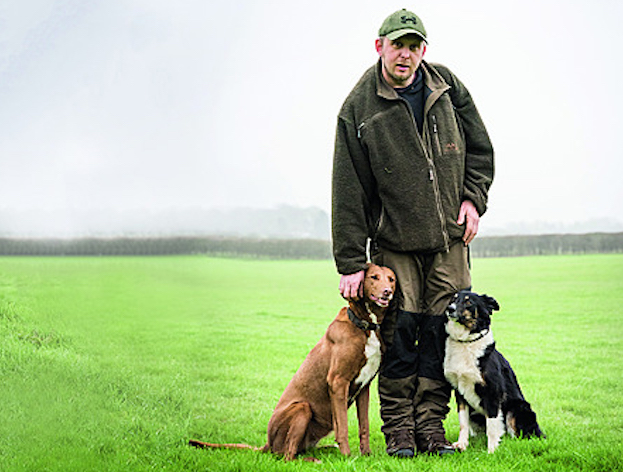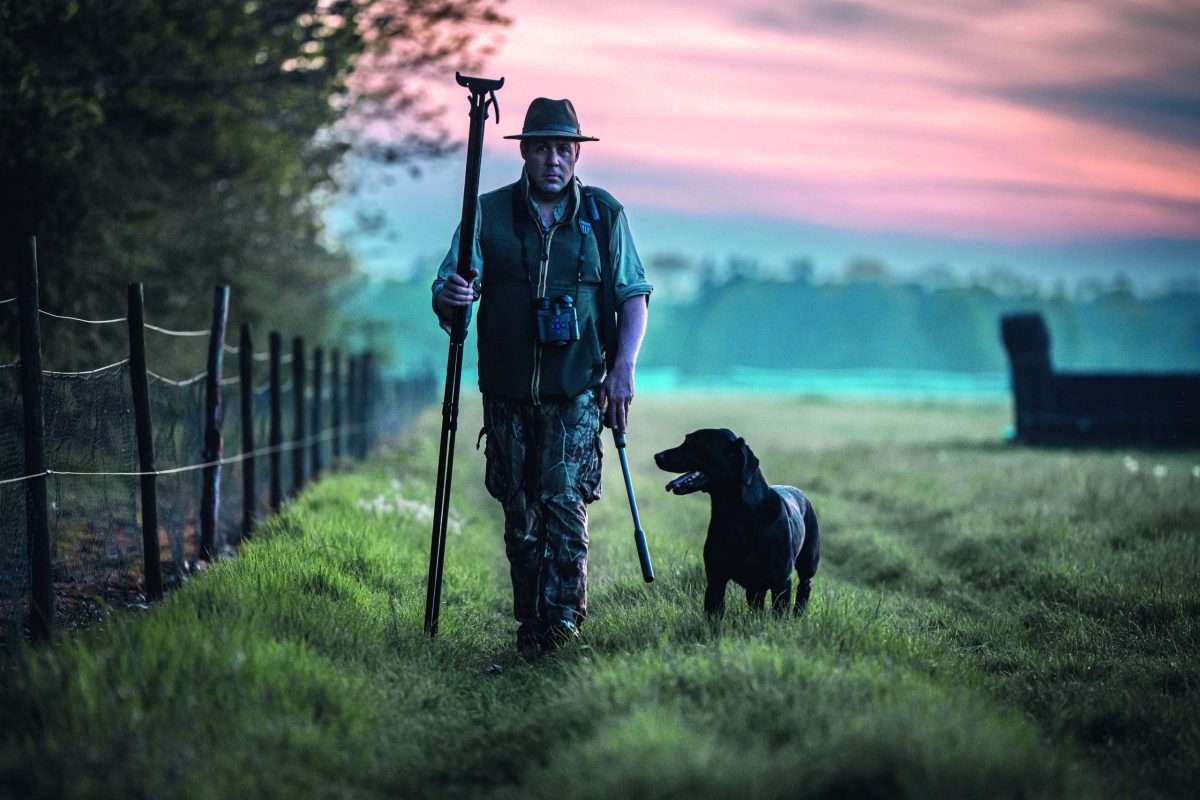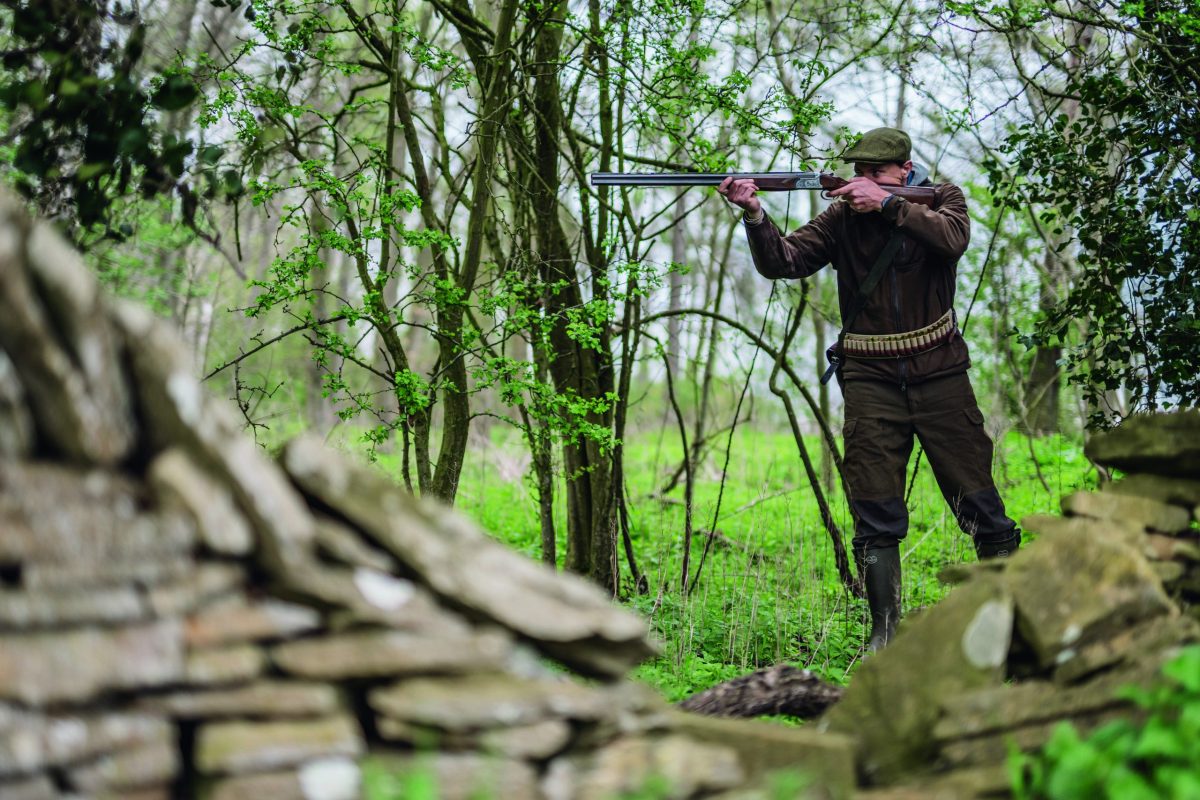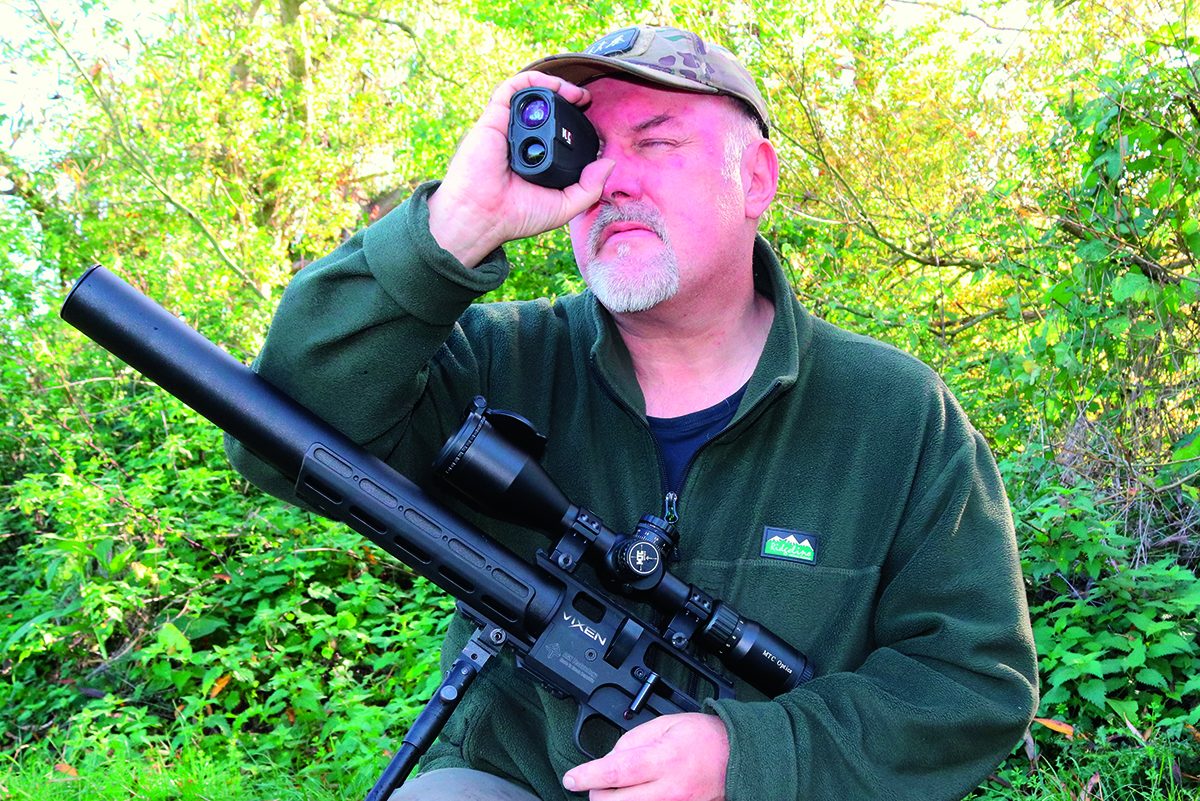Why being a rabbit catcher is my perfect job
Despite the long hours and sometimes testing conditions, Ed Cook says he's in the perfect job and wouldn't swap it with anyone

Ed Cook out working with his lurchers
Rabbit control has been my job since 2000 and I can certainly say the past 18 years have gone quickly.
People have said to me on numerous occasions, “That is my ideal job and you are very lucky.” True enough, and I do feel grateful to be doing what I do, but it is very hard work, the hours are long and often in weather that leaves much to be desired.
Bright idea
When I started this job all those years ago, long before my bones made funny noises, I wasn’t sure if my ‘bright idea’ of doing rabbit control full-time would work out, let alone become a long-term career. Never did I think this job would take me on such adventures or to the weird and wonderful places it has. I’ve worked alongside some truly talented dogs and people along the way and I’ve met some unique characters, which have kept things interesting – perhaps more so than they should have done at times.
The work I do and the locations I work in can vary greatly, from removing rabbits on an industrial estate in a city to working along the shoreline of a Hebridean island. I really enjoy the unpredictability of this job, never knowing what the next ‘day in the office’ will bring. While the locations change daily, most of the time is spent carrying out either ferreting, using dropboxes or installing new rabbit fencing. Tasks such as trapping and snaring are also part of the job. These can be carried out as part of a team or by myself, depending on the size of the job or the speed required to accomplish it.
The reality of working in rabbit control
The dogs, ferrets and hawks all need looking after. Feeding, training and cleaning takes time but I am lucky that my job allows these animals to be worked daily, which keeps them fit and focused.
Many of you may have a romantic image of the life of a rabbit catcher but there are plenty of mundane tasks involved. Like any other business, part of my role is to ensure quotes and invoices are sent out on time and payments turn up when they should so wages can be paid.
The rabbits we catch each day are recorded for our records and the carcasses are stored in freezers or sold on as fresh produce. This all takes time and is not quite the fun and games many people think it is. Seven-day weeks ferreting farmland are regular throughout the winter and if big, solar farm jobs come in during the summer months then there can be little free time.
Achievements
I lamp or go out with night vision and thermal equipment three or four nights a week and the lads I work with do the same. It may sound like great fun but we also have to achieve results. Our clients don’t care if you enjoy yourself; they just want the rabbits and related damage dealt with.
Such hours can be draining but it has become a way of life that I have happily evolved into. I’ve had a few highlights during my career so far: I was very proud to work alongside my old lurcher, Red, and writing for this magazine is also an achievement for me as the English language baffled me at school. Being part of the team to tackle the rabbit problem on Canna [in the Inner Hebrides] also means a lot to me.
If I had my time again, would I chose a different career? Not a chance. It’s one of the few things that I am remotely OK at.
Which are the best cartridges for rabbits?
Rabbits can be destructive — they cost British farmers £50 to £100 million each year. They kill saplings, ruin vegetable…
Controlling rabbits with firearms certificated air rifles (FAC)
So you need to carry out some rabbit control. But what’s the best way to do it? That will depend…
There are plenty of jobs that pay more but I would rather be doing what I do than work for double the amount and be unhappy. A true measure of one’s wealth is how much you would have if you lost all your money.
What next? Who knows, but there is always something around the corner.










